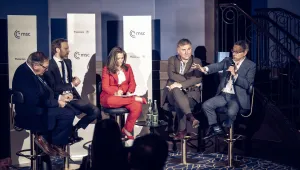Abstract
"Toxic Terror uses detailed case studies to seek out advance indicators of terrorists who are likely to attempt the use of chemical or biological weapons. This is a pioneering approach and a promising complement to the current emphasis on mitigating the consequences of CBW terrorism."
— Sam Nunn, U.S. Senator, 1972-97, and Partner, King & Spalding
"This insightful study of the motivations and patterns of behavior of individuals and groups that have acquired or used chemical or biological weapons is long overdue. There is little doubt that modern society is vulnerable to such attacks, but to prepare for and respond to the threat we must understand who may threaten us."- Senator Richard G. Lugar (R-Indiana)
"Toxic Terror is a balanced and insightful assessment of the most serious threat facing the United States at the dawn of the 21st century."
-- R. James Woolsey, Director, Central Intelligence Agency, 1993-95
Chapter authors of Toxic Terror include; W. Seth Carus, David Claridge, David E. Kaplan, John V. Parachini, Jason Pate, Jerrold M. Post, Jeffrey D. Simon, Ehud Sprinzak, Jessica Eve Stern, Terence Taylor, Tim Trevan, Idith Zertal
Policymakers, scholars, and the news media have been alarmed by the potential for chemical and biological weapons (CBW) terrorism, and the U.S. Congress has allocated billions of dollars for counterterrorism and "consequence management" programs. Driving these concerns are the global spread of scientific knowledge and technology relevant to CBW terrorism and the vulnerability of civilian populations to chemical and biological attacks.
Notably lacking from the analysis, however, has been a careful assessment of the terrorists themselves. What types of terrorist groups or individuals are both capable of acquiring chemical and biological weapons and motivated to use them, and for what purposes? Further, what types of toxic agents would probably be produced, and how would they be delivered?
Answers to these questions would enable policymakers to prepare for the most likely contingencies. To this end, Toxic Terror provides in-depth case studies of twelve terrorist groups and individuals who, from 1946 to 1998, allegedly acquired or employed CBW agents. The cases were researched from primary sources, including court documents, interviews, and declassified government files.
By comparing the twelve cases, the book identifies characteristic motivations and patterns of behavior associated with CBW terrorism and provides an empirical basis for prudent, cost-effective strategies of prevention and response.
Tucker, Jonathan B.. “Toxic Terror: Assessing Terrorist Use of Chemical and Biological Weapons.” MIT Press, February 1, 2000



